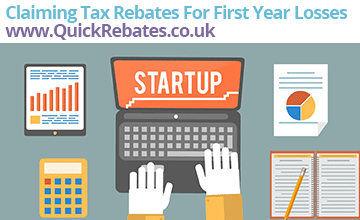What Information do you Need From Me?
Tax returns cover a wide range of areas. from interest earned on bank accounts, to state benefits received, salaries earned to gift aid charity payments. When it comes to preparing your Tax returns, we will run through a general checklist of items that we require, but a general list of documents would include:
- Forms P60 or P45 from employers or pension providers
- Details of any investment income, including interest received
- Accounts records for any buy to let properties
- Details of personal pension contributions
- Notes of any stocks and shares sold in the period
- Any other details you feel may affect our preparation of your Tax return
The more information you supply, not only will it make our job easier, but it will ensure that we are claiming as many deductible expenses as possible and claiming all appropriate reliefs.
Income From Property
Many people have an a second house (or more) that is being rented out for an income stream. Perhaps you have a buy to let (BTL) investment and are looking for advice on completing your self assessment Tax return.
Preparing rental accounts are a little similar to preparing accounts for sole traders and partnerships, but rental income does have it’s own complications. Confusion can surround certain costs, for example whether something is a revenue cost or capital cost.
There are also specific reliefs, rules and regulations, for example that of furnished holiday lettings, and the restrictions surrounding the deductible costs of mortgage relief. It can quickly become very complicated, especially if you have multiple mortgages and properties.
Untaxed Income
There are numerous sources of income, untaxed at source that would give rise to the need of submitting a Tax return to HMRC. Some examples would be:
- State benefits received, including state pension, carer’s allowance, incapacity benefit and many more
- Gains on life insurance policies
- Foreign income
- Some forms of savings interest
The Taxation rules surrounding these can be quite tricky, and unless you have experience with these aspects, it can be easy to make a mistake. We would encourage you to contact ourselves for a no obligation quote.
Annual Investment Income
If you have annual investment income over £10,000 before Tax, then you are legally required to file a Self-Assessment Tax Return. This is because the nature of investment income can be quite diverse by nature, and not all of the income is Taxed under the same rules. It’s also quite possibly some of the income has not been Taxed at all.
Examples of investment income would include:
- Interest on standard bank and building savings accounts
- Interest received from National Savings and Investment products (NS & I), but some of these accounts are Tax free
- Interest & dividends received from unit trusts
- Other dividend income received
Particular care should be taken when reporting investment income. Some accounts are Tax free such as ISAs and LISAs from April 2017, whereas some other products have Tax free allowances.
If you are in receipt of investment income, your Tax situation can quickly become complicated. Have peace of mind and leave the preparation of your Tax returns with QuickRebates.
Declaring and Paying Capital Gains Tax
One area that can trip people up is Capital Gains, and it’s often an area where HMRC like to mix up the rules every few years. So what you might have understood some years ago, might not apply this day.
Capital Gains are essentially profits that you have made on the disposal (or part disposal) of certain assets. These assets can include:
- Sale of stocks and shares
- Disposal of property – residential or commercial
- The sale of a business, and/or business assets
- Sale of valuables & collectables
- Many more
Different rules, regulations and reliefs apply to each category of asset. From entrepreneurs relief to business asset relief, it can quickly become extremely complicated.
Dividend Tax Changes
With regards to dividends received, there have been quite a few material changes made recently which increase the Tax payable. In the past, basic rate Tax payers were able to receive dividends Tax free as long as the income didn’t push them into higher rate. The rules have since been updated and are as follows:
- Year ended 5th April 2017 : £5,000 Tax free
- Year ended 5th April 2018 : £5,000 Tax free
- Year ended 5th April 2019 onwards : £2,000 Tax free
The rate of Tax you pay depends on your level of income. Where the dividend sits at basic rate, the chargeable dividend rate is 7.5%, 32.5% for higher rate Tax payers and 38.1% for additional rate Tax payers.
You must be aware that it is possible for dividend income to fall within two, or even three rates depending on the amounts received.

17 Actionable Tips for New Business Startups
17 Top Tips for New Businesses (Physical and Digital) Starting any business be it physical or digital, can be extremely[...]

Tax Relief for Opening Year Losses
Opening Year Loss Relief When starting a new business, it is incredibly common for Tax losses to arise in the[...]

Tax Refunds for Musicians
Musicians – It’s Time to Claim Back Your Tax! As a musician starting up in business, you could be entitled[...]







